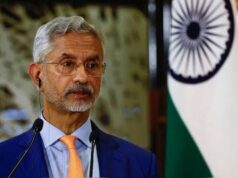Marine Le Pen sentencing sparks political turmoil and judicial controversy in France

A ruling by a Paris court on March 31 has sent shockwaves through French politics, effectively barring right-wing leader Marine Le Pen from contesting the 2027 presidential election.
The former leader of the National Rally (RN) and current head of its parliamentary faction was sentenced to four years in prison, with two years without parole, over allegations of embezzling European Union funds.
The verdict, which also includes a five-year ban on holding public office, has sparked fierce debate about judicial neutrality, political fairness, and the future of French democracy.
AThe case against Le Pen and several other RN figures centers on accusations that they misused EU funds intended for parliamentary aides, redirecting them instead to finance party activities.
The Paris court found Le Pen and eight other former Members of the European Parliament (MEPs) guilty of running the scheme between 2004 and 2016, sentencing several of them to prison terms ranging from 12 months to three years.
As part of the court’s decision, RN was hit with a fine of €2 million ($2.2 million), while Le Pen herself faces severe political and legal consequences.
The ruling immediately disqualifies her from the 2027 presidential race, where she was a leading contender, setting off a wave of condemnation from across the political spectrum.
Le Pen’s lawyer, Rodolphe Bosselut, has vowed to appeal the ruling, denouncing it as a politically motivated attack designed to eliminate a key opposition figure. While appeals are pending, the five-year ban on seeking office is immediately enforceable, raising concerns about whether the judiciary is being used as a tool to shape electoral competition.
Critics from across the French political spectrum have raised alarms about the implications of the ruling. François-Xavier Bellamy, a European Parliament Member and vice president of the center-right Republicans, called the ruling “a very dark day for French democracy.”
Laurent Wauquiez, leader of the Republicans, also denounced the verdict, stating, “It is not healthy for an elected official in a democracy to be banned from running for office.”
Even the far-left La France Insoumise (LFI), a staunch opponent of Le Pen’s RN, voiced concerns. LFI coordinator Manuel Bompard condemned the court’s decision, arguing that political battles should be settled by voters, not by judges.
“We are fighting [the National Rally] at the ballot box and in the streets, through the popular mobilization of the French people,” Bompard said, rejecting what he called judicial interference in democratic competition.
The ruling has reverberated beyond France, drawing condemnation from right-wing political figures across Europe and beyond. Dutch nationalist leader Geert Wilders described the decision as “incredibly tough,” expressing full support for Le Pen and confidence in her appeal.
Italy’s Deputy Prime Minister Matteo Salvini framed the ruling as a broader attack on national sovereignty by Brussels, calling it “a declaration of war” and comparing it to the annulment of Romania’s presidential election last year due to alleged foreign interference.
Hungarian Prime Minister Viktor Orban took to social media to voice his support, posting “Je suis Marine!” in reference to the slogan popularized in the aftermath of the Charlie Hebdo terrorist attack in 2015.
Outside Europe, Russia’s Foreign Ministry spokeswoman Maria Zakharova went further, calling the ruling an example of “the agony of liberal democracy” in the EU, accusing Western institutions of crumbling under their contradictions.
The exclusion of Marine Le Pen from the 2027 presidential election upends the political landscape in France. Her strong polling numbers suggested that she had a real chance of winning, especially with President Emmanuel Macron constitutionally barred from seeking a third term.
Now, her absence raises several key possibilities:Fragmentation of the Right: Without Le Pen as the central right-wing candidate, the French conservative vote could fracture among multiple contenders.
This fragmentation could benefit Macron’s successor or a centrist candidate, such as current Prime Minister Gabriel Attal or another figure from Macron’s Renaissance party.
A Surge in RN’s Support: If voters perceive the ruling as unjust, the National Rally could experience a sympathy-driven surge in support. The party may rally behind a new leader-possibly its current president, Jordan Bardella-who could inherit Le Pen’s political capital and carry forward her agenda.
A Political and Legal Crisis: The court’s decision risks inflaming tensions between the judiciary and political forces, particularly if it is seen as an attempt to manipulate electoral outcomes. If protests erupt against what many see as judicial overreach, France could be plunged into deeper political instability.
Le Pen’s sentencing raises fundamental questions about the role of the judiciary in shaping political outcomes. While no one is above the law, many critics argue that if her conviction stands, it could set a dangerous precedent where courts are used to eliminate political opponents rather than allowing voters to decide their fate.
Jordan Bardella, RN’s current president, strongly condemned the ruling, calling it “an execution of French democracy.”
Whether or not Le Pen succeeds in overturning the verdict, the political landscape in France has been irreversibly altered. If she remains barred from running in 2027, RN must find a new standard-bearer-a daunting task given Le Pen’s personal brand and political influence.
Marine Le Pen remains one of the most formidable figures in French politics, and this ruling will not erase her influence overnight. If she successfully appeals, she could re-enter the race, but she will face years of legal and political battles ahead.
Meanwhile, the ruling will likely be a central issue in the upcoming European Parliament elections, where RN hopes to capitalize on voter discontent. The verdict has ignited debates over democracy, judicial neutrality, and political fairness-not just in France, but across Europe.
With international reactions further fueling the controversy, the case has become emblematic of the broader tensions within the EU and the global rise of right-wing populism.
Whether this ruling strengthens or weakens Le Pen’s movement remains to be seen, but one thing is certain: the 2027 election is now more unpredictable than ever.




